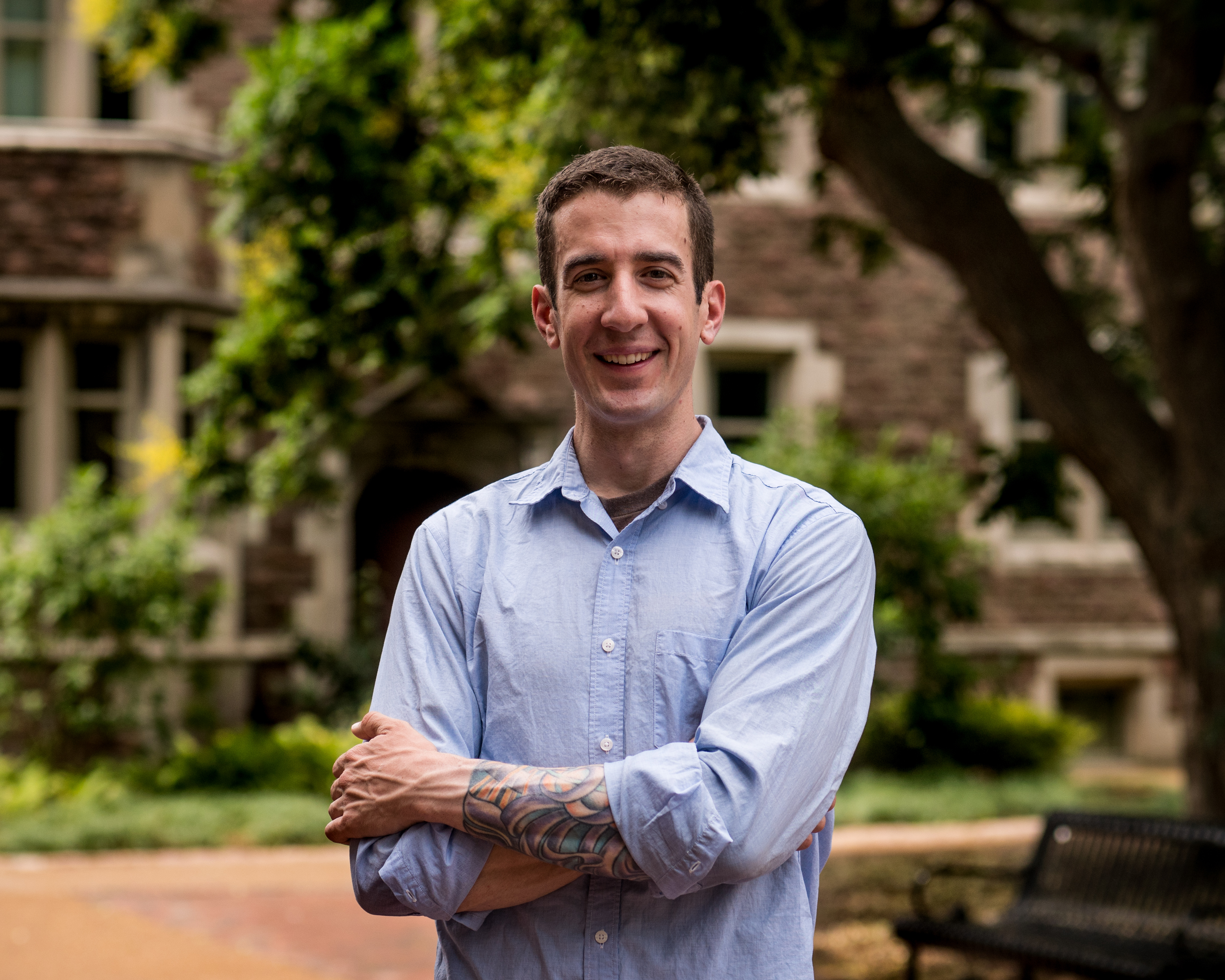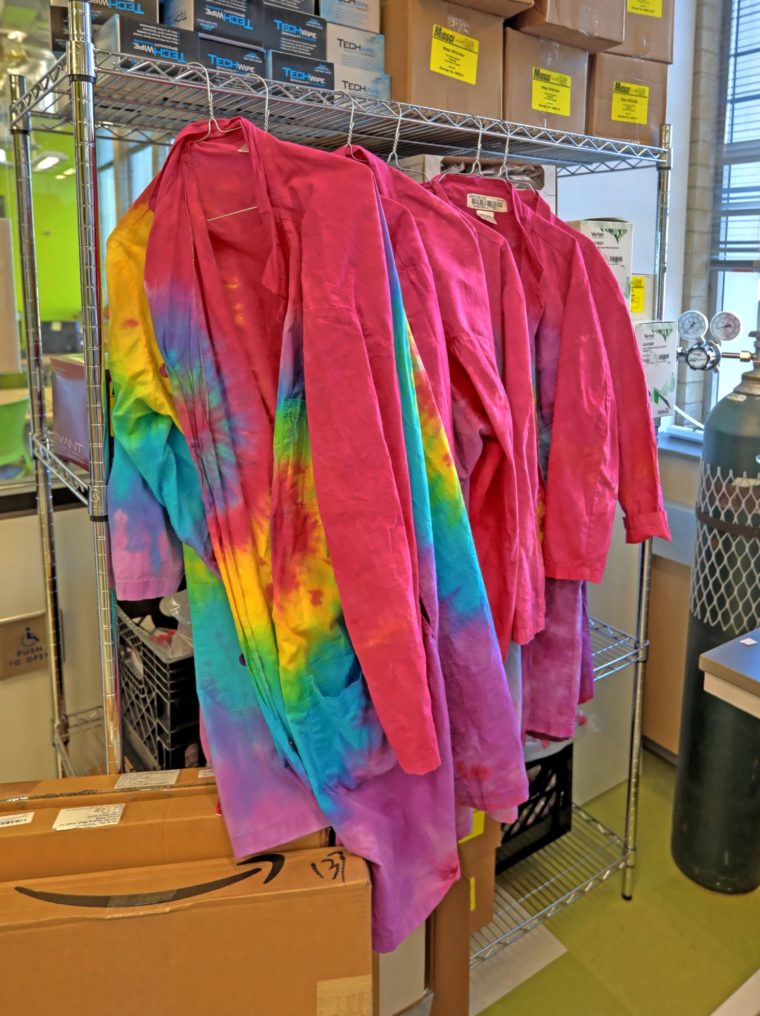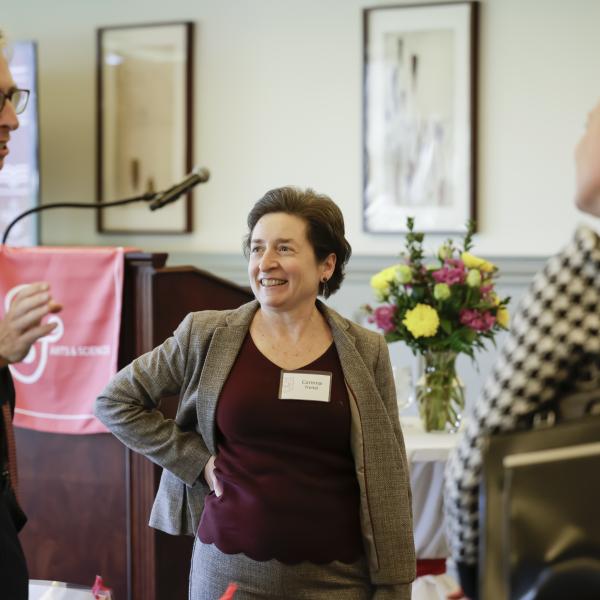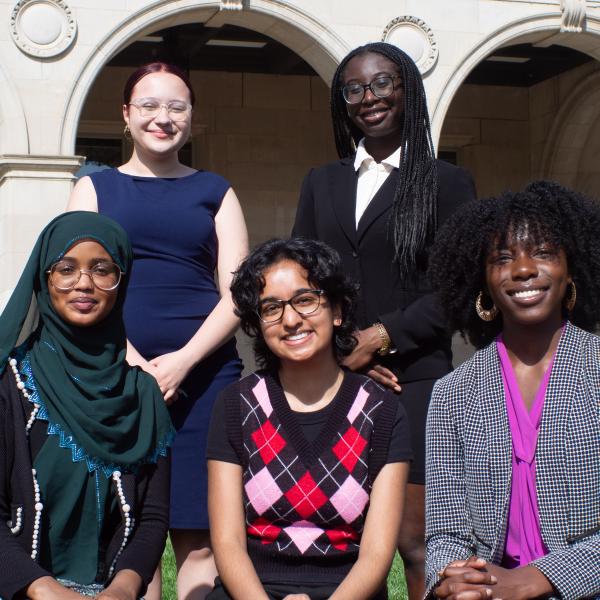Biologist Keith Hengen reflects on his unexpected path to a research career and the people who guided him along the way.
Today the lab of Keith Hengen, assistant professor of biology, is a powerhouse for research on the brain. In October, the lab received a three-year $1.8 million grant from the National Institutes of Health to study the role of sleep in neural network dynamics. Hengen's group investigates this and other questions through monumental data collection, with his 11-person team tracking up to 1,000 neurons in animal brains for weeks at a time. For Hengen, the journey to this point has been full of unexpected turns, with a cast of energetic mentors to point him in the right direction.

At the end of his first year at Bates College, Hengen felt aimless, without academic interests. “I was the kid who any observer could probably tell was smart, ‘if only,’” Hengen said. “‘If only he were to work a little harder,’ ‘if only he were to actually study for the test.’” His passions instead lay outside the classroom. “I used to race mountain bikes, very seriously, to the point that I was about to — we’ll say defer the remainder of my college career.”
Hengen’s trajectory changed after a serious injury the day before his sophomore year began, ending his racing season. “Retrospectively, that’s probably the best thing that could have possibly happened to me,” Hengen said, “because as a result of those injuries, and my inability to integrate racing into what would have been my final year of college, I needed to find other sources of employment.” After a brief stint working for the campus grill, Hengen found himself intrigued when a few of his intro psychology classmates mentioned that they were working for the professor, Todd Kahan.

“I didn’t even understand what that could possibly mean in the context of a four-year [liberal arts] college,” Hengen explained. Although he had registered for the class only to fulfill a requirement, he respected Kahan, a cognitive psychologist and “a cynically humorous, brilliantly inspiring professor,” and asked if there were a way he could also work under him “in whatever context that might be.” “He said, ‘Sure, welcome aboard,’” Hengen recounted, “and that really was the beginning of the end.”
Hengen fell in love with the research, sometimes staying in Kahan’s lab until 3:00 in the morning. He declared a major in psychology soon after, to reinforce the ideas he was working with in the lab. This was a defining moment for Hengen, shaping his career and literally marking his definition of an academic passion: “It contextualized the things I was learning, and I had a reason to care about those and a reason to go beyond even what was assigned to me… everything started to click.”
Another puzzle piece that fell into place was Hengen’s new major requirement to take a neuroscience class. The course he chose was taught by Roxanne Pritchard, who studied sleep and circadian rhythms using mice and rats; Hengen soon joined Pritchard’s lab as well. “So now my life consisted of skipping class to go rock climbing, working in one lab, running down the hall to work in the other lab, and then wash, rinse, repeat,” Hengen joked.
Hengen was unsure what his next step would be until Kahan and Pritchard told him he should consider a doctorate. Hengen noted that research universities, with graduate students, post-docs, and research track professors, give students a clear set of next steps in academia, which he lacked at the time. Hengen embraced his professors’ suggestion and chose to study at the University of Madison-Wisconsin, under Mary Behan, Pritchard’s own former doctoral mentor, who studied respiratory and neurobiology as a function of aging and sex hormones. Behan, Hengen recalled, “in heels, might be five foot two, but she has such a grand personality, that when she would walk in the room I couldn’t help but look up, as if she were seven feet tall.” Behan shares Hengen’s interests in biking and climbing, as well as being an Irish National Judo Champion, and the positive energy in her lab heavily inspired Hengen’s design of his own lab.
Behan worked primarily with mice and rats, helpful analogous models to human brains. Hengen, however, “ended up making a discovery about hibernating ground squirrels, which was a totally tangential and unpredictable collaboration.” Squirrels’ body temperature drops two degrees below freezing during hibernation, potentially causing numerous physiological problems, including the retraction of connections between neurons. Hengen discovered the system by which squirrels partitioned their brains, allowing one unaffected area to still maintain breathing and heart rate, albeit both much more slowly than while the squirrels were awake. “And that just involved a lot of really fun nights,” Hengen added, “because you can’t control when squirrels go in and out of torpor, or the hibernating state. Every two weeks roughly they’ll just spontaneously come out of torpor for about 12 hours…. I’d get a text message at 3:00 in the morning that such and such squirrel was coming out of torpor, grab coffee and Redbull and rip into the lab.”

Following Hengen’s doctoral degree, he worked as a post-doc under Gina Turrigiano at Brandeis, who studies homeostatic tuning mechanisms in neurons. “I think through sheer force of enthusiasm I badgered my way into a position in her lab,” Hengen said, “and I did well, made some discoveries, and ended up leveraging those to get a job at WashU.” He has been here since, building up his own lab. Much of his current research builds on Turrigiano’s, studying tuning mechanisms in intact brains, at the network level rather than the cellular level. Armed with the recent grant to study sleep, Hengen hypothesizes that waking experience degrades the computational organization of the brain and the regulatory mechanisms that maximize information processing, and that sleep restores the system to the optimal settings.
One lesson from Hengen’s own history he hopes to impart to students is that there is no finish line he or they will reach. Hengen noted that some students unhappy with the work or attitudes surrounding them mistakenly believe there is a liberation date. However, it is more likely that they will continue working with those same problems and same people throughout their career. “So if you don’t love what you’re doing right now,” Hengen said, “stop walking down this path and just do something else.”
"This structured, more distant objective of ‘what is my career becoming’ has become more and more crystallized as time has gone on,” Hengen said. “But I still stand by a guiding principle: figure out what I enjoy doing today, and try to do that again tomorrow.”



